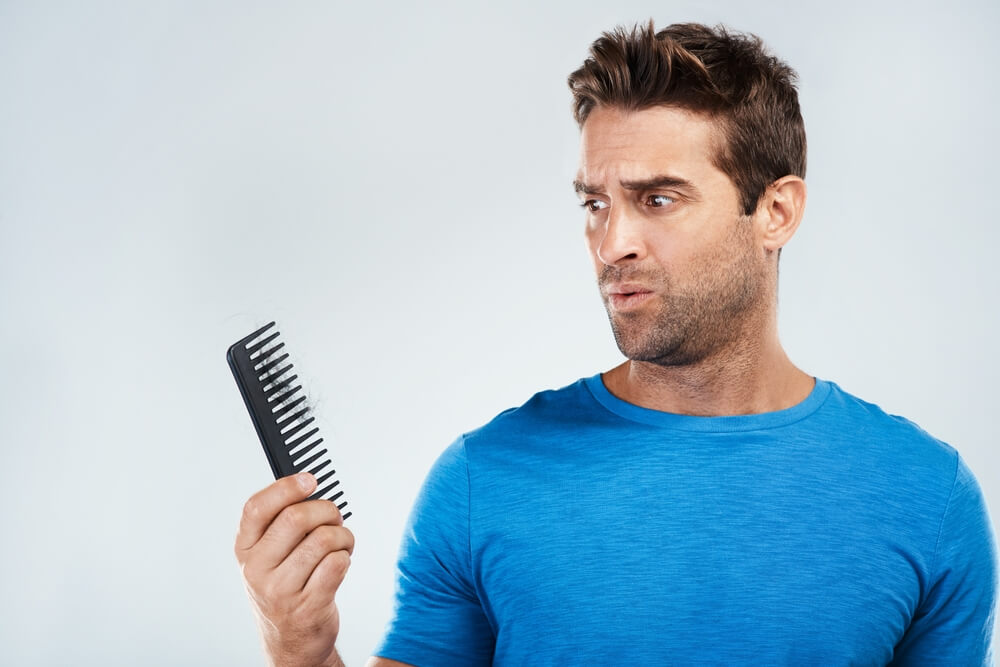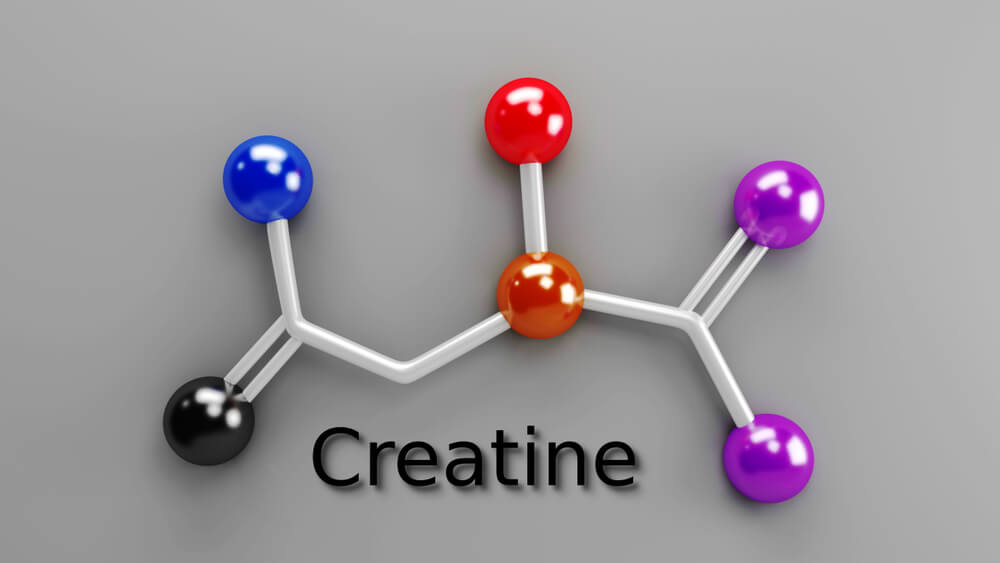
Creatine is a popular supplement in sports and fitness for muscle building and performance enhancement. However, there are concerns about its link to hair loss, particularly through the hormone DHT associated with male pattern baldness. This text explores scientific research and user reports to uncover the truth about creatine’s impact on hair health, providing guidance on safe use without compromising hair health.
Understanding Creatine and Its Popularity in Sports and Fitness
Creatine has become a staple in the world of sports and fitness, renowned for its ability to enhance athletic performance and support muscle building. As one of the most researched fitness supplements, creatine is a naturally occurring compound found in small amounts within certain foods and synthesized by our bodies. Its primary role is to supply energy to cells, particularly muscle cells, during high-intensity exercise.
The popularity of creatine supplements stems from their proven effectiveness in boosting strength, increasing lean muscle mass, and improving recovery times. For athletes engaged in sports that require quick bursts of energy (such as sprinting or weightlifting) creatine provides an invaluable edge by replenishing ATP (adenosine triphosphate), the energy currency of the cell.
Incorporating creatine into a sports nutrition regimen can lead to noticeable improvements in performance. Studies have consistently shown that individuals who supplement with creatine experience greater gains in strength and muscle mass compared to those who do not. This makes it an attractive option for bodybuilders and athletes looking to maximize their training efforts.
Despite its benefits, it’s important for users to understand how to properly incorporate creatine into their diet. While generally safe for most individuals when taken at recommended doses, consulting with a healthcare professional can provide guidance tailored to personal health needs and fitness goals.
Overall, the widespread use of creatine supplements underscores its reputation as a powerful tool in enhancing athletic performance and supporting muscle development within the realm of sports nutrition.
What Studies Say About Creatine and Hair Loss

Creatine, a popular supplement among athletes and fitness enthusiasts, has been the subject of numerous research studies due to its potential effects on muscle mass and exercise performance. However, a topic that often arises in discussions about creatine is its alleged link to hair loss. To understand this connection, it’s essential to delve into the scientific evidence available.
One of the primary concerns is the relationship between creatine supplementation and DHT (dihydrotestosterone) levels. DHT is an androgen known for its role in hair follicle miniaturization, which can lead to hair loss in individuals genetically predisposed to androgenetic alopecia. Some studies have suggested that creatine might increase DHT levels, thereby potentially accelerating hair loss.
However, it’s important to note that these findings are not universally accepted within the scientific community. The most frequently cited study on this topic involved a small sample size and did not conclusively establish a direct causative link between creatine use and increased DHT levels leading to hair loss. As such, while there may be some correlation suggested by preliminary research, definitive conclusions cannot be drawn without further extensive studies.
In summary, while some research indicates a possible association between creatine supplementation and elevated DHT levels which could theoretically contribute to hair loss there is currently insufficient scientific evidence to confirm this link unequivocally. Individuals concerned about hair loss should consider consulting healthcare professionals before making decisions based on current research findings related to creatine use.
The Role of DHT (A Hormone Associated with Hair Loss Concerns)
Dihydrotestosterone, commonly known as DHT, plays a significant role in hair loss concerns, particularly in the context of male pattern baldness. This powerful androgen hormone is derived from testosterone through a process called 5-alpha-reductase conversion. While testosterone itself is crucial for various bodily functions, its conversion to DHT can have profound effects on hair follicles.
The primary concern with DHT is its impact on the hair growth cycle. In individuals genetically predisposed to male pattern baldness, DHT binds to receptors in scalp follicles, leading to their gradual miniaturization. Over time, this process results in thinner and shorter hairs until the follicles eventually cease producing new hair altogether.
Understanding the effects of DHT hormone conversion is essential for addressing hair loss issues effectively. By targeting this specific pathway either through lifestyle changes or medical interventions’s possible to slow down or even mitigate the progression of male pattern baldness. As research continues to delve into hormonal influences on hair health, new treatments and strategies are emerging that offer hope for those affected by this common condition.
Anecdotal Reports vs Scientific Findings on Creatine Use
When exploring the effects of creatine, a popular supplement among athletes and fitness enthusiasts, it’s important to differentiate between anecdotal reports and scientific findings. Personal stories about creatine use often highlight individual experiences, which can vary widely. For instance, some users have shared anecdotal evidence of hair loss from creatine use, attributing changes in their hair density to the supplement. These personal accounts can be compelling and offer insights into how different people react to creatine.
However, it’s crucial to weigh these anecdotes against scientific research. Numerous studies have been conducted on the effects of creatine supplementation, focusing on its benefits for muscle mass and performance enhancement rather than side effects like hair loss. To date, there is limited scientific evidence directly linking creatine use to hair loss. Most controlled studies suggest that while individual reactions can occur due to various factors such as genetics or overall health conditions, there is no definitive causal relationship established by research.
While personal stories provide valuable perspectives on how individuals experience supplements like creatine, they should be considered alongside scientific findings for a comprehensive understanding of its potential impacts. As with any supplement regimen, consulting healthcare professionals is recommended for personalized advice based on one’s unique health profile and goals.
Tips for Safe Creatine Use Without Compromising Hair Health
Navigating the world of supplementation can be daunting, especially when considering how to safely use creatine supplements without compromising your hair health. Creatine is a popular choice among athletes and fitness enthusiasts for its ability to enhance muscle performance and recovery. However, concerns about potential side effects, including hair loss, have prompted many to seek guidance on minimizing risks.
To safely incorporate creatine into your regimen while minimizing side effects, start by choosing high-quality supplements from reputable brands. Look for products that have been tested for purity and potency. It’s also important to adhere to recommended dosages; typically, a daily intake of 3-5 grams is sufficient for most users.
Hydration plays a crucial role in mitigating any adverse effects associated with creatine use. Ensure you’re drinking plenty of water throughout the day to support kidney function and overall health. Additionally, maintaining a balanced diet rich in vitamins and minerals can help bolster hair health.
Lastly, consider consulting with a healthcare professional before starting any new supplement routine. They can provide personalized advice based on your individual health needs and goals. By taking these steps, you can enjoy the benefits of creatine while safeguarding your well-being.
Weighing Creatine’s Pros and Cons
In conclusion, the decision to use creatine supplementation for individuals concerned about hair loss involves weighing both its potential benefits and associated risks. Creatine is well-regarded for its ability to enhance athletic performance by increasing strength and muscle mass, making it a popular choice among athletes and fitness enthusiasts. However, concerns about hair loss stem from studies suggesting that creatine may increase levels of dihydrotestosterone (DHT), a hormone linked to hair follicle shrinkage in genetically predisposed individuals.
While research on this topic is not yet conclusive, those with a family history of androgenic alopecia may wish to exercise caution or consult with a healthcare professional before beginning supplementation. It’s essential to consider individual health profiles and goals when evaluating whether the benefits of improved physical performance outweigh the potential risk of accelerated hair thinning.
Ultimately, staying informed through ongoing research and seeking personalized medical advice can help individuals make educated decisions about incorporating creatine into their fitness regimen while managing concerns about hair health.
